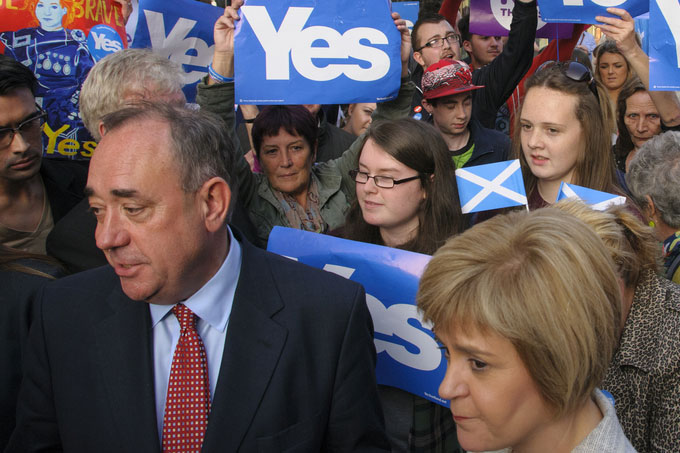Paul Anderson looks at recent developments in Scottish politics and what it means for the future of Scottish independence.
Under increased pressure from opposition parties and senior figures within the SNP itself, Scottish First Minister Nicola Sturgeon has referred herself to an independent ministerial ethics body to investigate her role – and whether she broke the ministerial code – in the handling of the ongoing Alex Salmond sexual harassment case.
After being taken to court by former First Minister Salmond over its handling of the alleged assaults (allegations that remain under police investigation), the Scottish Government was forced to concede that its actions had been unlawful after it admitted that the investigating officer appointed to the case had had prior contact with the two complainants.
To make matters worse, not only did Salmond call for the resignation of the government’s most senior civil servant, Permanent Secretary, Leslie Evans, but after Sturgeon’s admission that she had spoken with Salmond five times during the course of the investigation – including three meetings at her home – opposition parties have called for further investigations into the First Ministers’ involvement in the whole affair.
Not satisfied with the First Minister’s referral to an independent body, the Scottish Parliament has itself agreed to establish a special committee to examine exactly what happened, focusing on how the complaints were handled and the circumstances around the meetings between Salmond and Sturgeon. The First Minister, confident in her approach, has publicly agreed to cooperate with the inquiry.
Claims of a civil war within the SNP are premature but reported infighting between ‘Team Salmond’ and ‘Team Sturgeon’ has the potential to cause a serious rift within the party, poisoning future relations between the two First Ministers.
Yet, the potential ramifications of any such rift go beyond the SNP itself and risks undermining not only the incumbent Scottish government’s case for independence, but the credibility of the Scottish civil service, who would after all, play a key role in facilitating and running an independent Scotland.
Despite the ongoing Brexit quagmire, and the potential economic damage this may wreak on the Scottish economy, the SNP’s case for independence – as of yet – remains where it did after voters rejected it in 2014, short of the required 51% mark (albeit, given the EU withdrawal referendum the Scottish Government would be hoping for a clearer margin of victory).
Many pro-independence supporters, Nicola Sturgeon included, have consistently argued that Brexit strengthens the case for independent statehood, but opinion polls have yet to register a steady increase in support for independence. There is, for example, merit in the argument that the economic case for independence – which envisions an independent Scotland firmly anchored within the European Union, single market and all – may be bolstered in light of the UK’s proposed withdrawal, but so too is the rebuttal that the UK itself is more economically important to Scotland than its relations with the continent. The case, much like in 2014, is not clear-cut.
The UK’s proposed departure from the EU will indisputably have profound constitutional, economic, legal and political ramification for Scotland – as well as Wales and Northern Ireland – but whether this precipitates Scotland’s secession from the UK remains to be seen.
Since the EU referendum in 2016, Nicola Sturgeon has been consistently portrayed as one of the leading politicians in the UK; the post-Brexit voice of reason. The First Minister is likely to ride out this storm – particularly given political developments elsewhere in the UK – but her reputation has already been badly bruised.
The SNP will hope for a quick recovery from the Sturgeon-Salmond debacle, but damage to the party’s reputation is now out of its own hands. For independence supporters, any schism within the SNP must not detract from mounting a second – and this time successful – referendum campaign; it’s game on rather than game over.
Paul Anderson is a Sessional Lecturer in Politics and International Relations and a PhD candidate.
 Expert comment
Expert comment Jeanette Earl
Jeanette Earl 535
535


